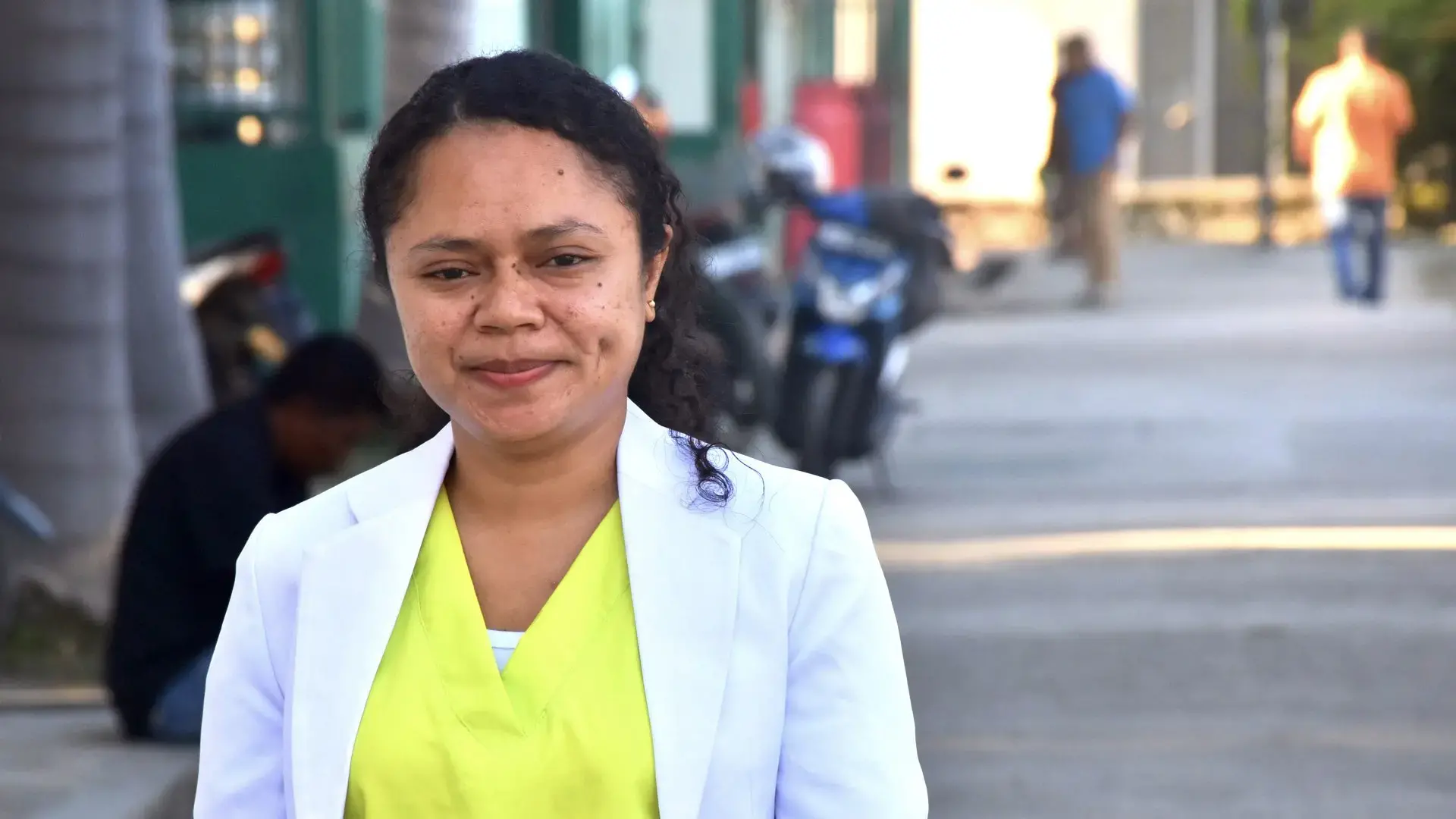Using virtual reality to train doctors remotely in Timor-Leste
Using virtual reality to train doctors remotely in Timor-Leste
Dr Eni Lila Dila works at the Maubisse Referral Hospital in a remote part of Timor-Leste. She knows from experience how difficult complicated births can be in a hospital that is often under-resourced. Eni took part in a 26-day obstetrics training course in Dili and got to practice challenging cases using a virtual reality (VR) training platform being developed by UNFPA.
“The main reason for me to decide to become a doctor is because in Timor-Leste there are not enough doctors; the problem with health is so vast,” Eni says.
She decided to focus on maternal health and now runs the unit that seeks to ensure safe births in the rural interior of Timor-Leste, where lack of reliable roads or transport can deny women access to services. “I’m working in a mountainous area with very difficult access,” she says.
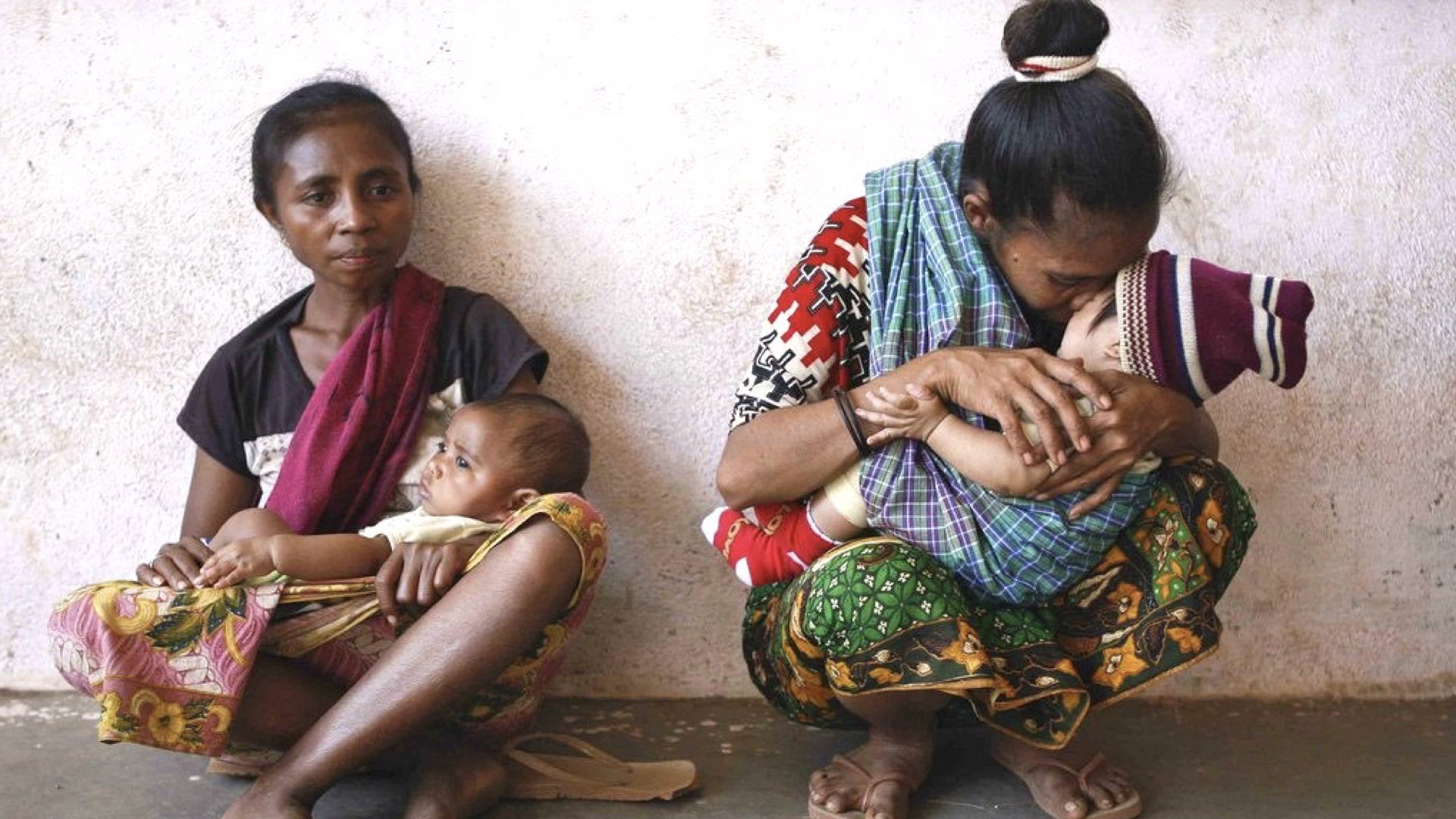
Eni’s maternal health unit gets referrals from villages even higher in the mountains and she often has cases where there are complications and she has to make life and death decisions based on her training. She says that there are many gaps in resources, skills and policies: “In maternal health services, we are facing a lack of ability and knowledge of how to deal with complications. There’s a lack of equipment and no guidelines on how to manage obstetrical problems.”
Eni says that attending the training course and connecting with other doctors from around the country has helped her deepen her knowledge and understanding: “When you just read the books, then you don’t see the cases. Without application of the learning, without real cases, you’re basically reading theory, theory, theory.”
“When you just read the books, then you don’t see the cases. Without application of the learning, without real cases, you’re basically reading theory, theory, theory.”
She has found that the focused 26-day course in obstetrics has helped boost her comfort level in complex situations. “In terms of self-confidence, I wouldn’t say that’s going to be 100 per cent,” she says. “But there is more self-confidence because of the knowledge and the ability that I just learned.”
Eni is one of the first doctors in Timor-Leste to try out and provide inputs into the VR platform, which will teach students how to handle complications in childbirth. Eni says she was amazed by the learning experience. “I never, never imagined something like this,” Eni says. “This is an excellent tool to enhance our abilities, because you will see something in the headset, but it’s as if it’s real for you.”
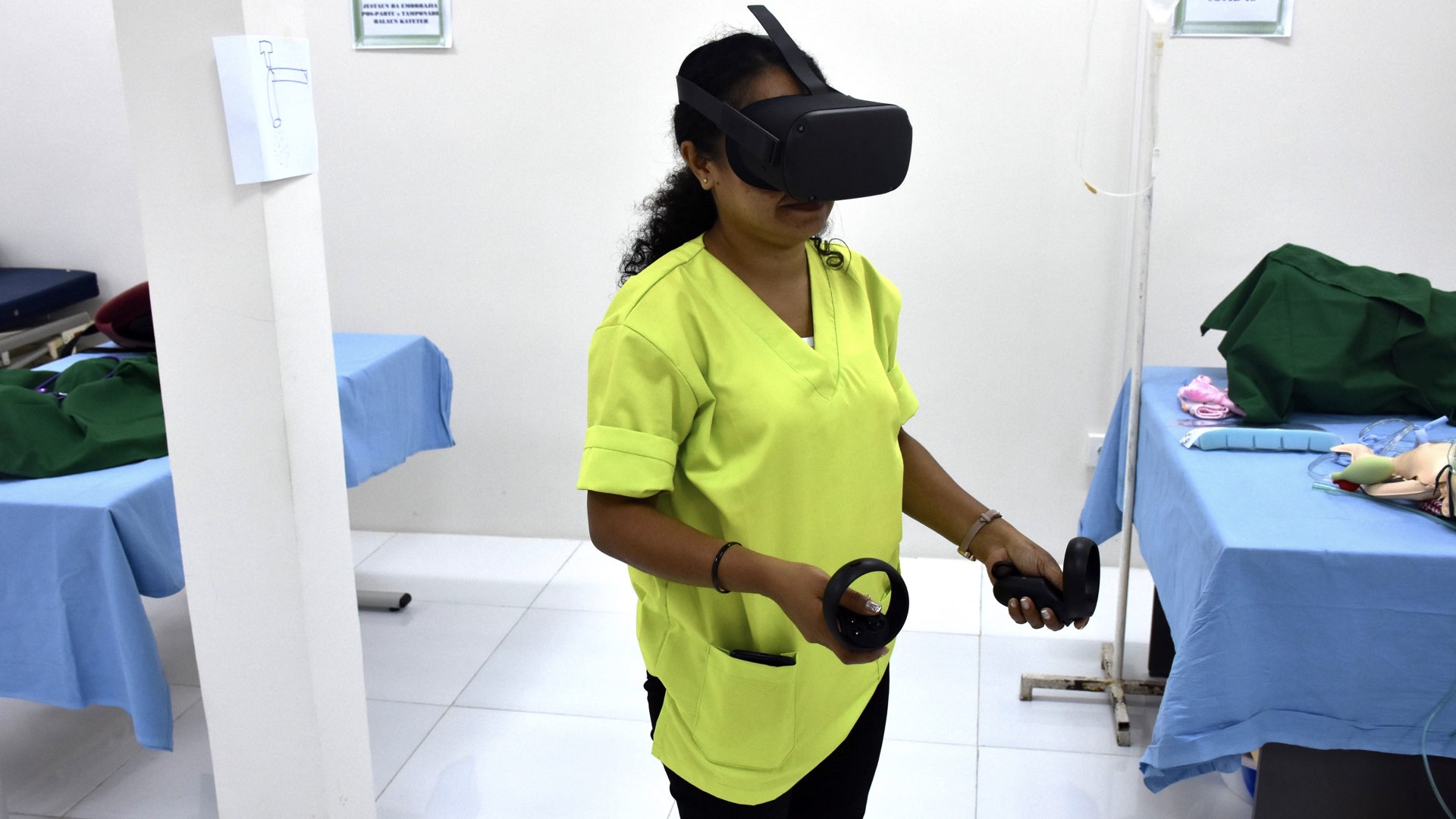
Eni says that COVID-19 has increased the pressure on the already stretched health system because many specialists are stranded abroad, so the care that they are able to deliver is reduced. “COVID-19 has also increased the number of referral patients from our hospital to Dili because of a lack of specialist doctors in our area,” she says.
Eni reports that big storms are frequent in her part of Timor-Leste, that women and girls are more vulnerable to health risks and that some people are reluctant to make the trip to the hospital to seek medical care. “It is very difficult to convince the community to come to seek medical treatment at the hospital,” she says.
“We can learn new techniques through virtual reality: we can practice our hand movements and it can help us maintain our skills.”
She’s frustrated that she cannot do home visits to remote villages where the care is needed most. “We work in the referral hospital, so we have to be ready for the referral patients at any moment,” she says. “The health providers who work in the community health centres are working to change perceptions.”
Despite the limitations, Eni says that she and her colleagues do lots of community health promotion; however, it’s a long-term process: “Sometimes people prefer to look for traditional treatments when they get injured due to a storm.”
She hopes that she can gain more training not only in maternal health but also in internal medicine and infectious diseases. Eni is committed to learning as much as possible and is looking to expand her skills further, in paediatrics and surgery.
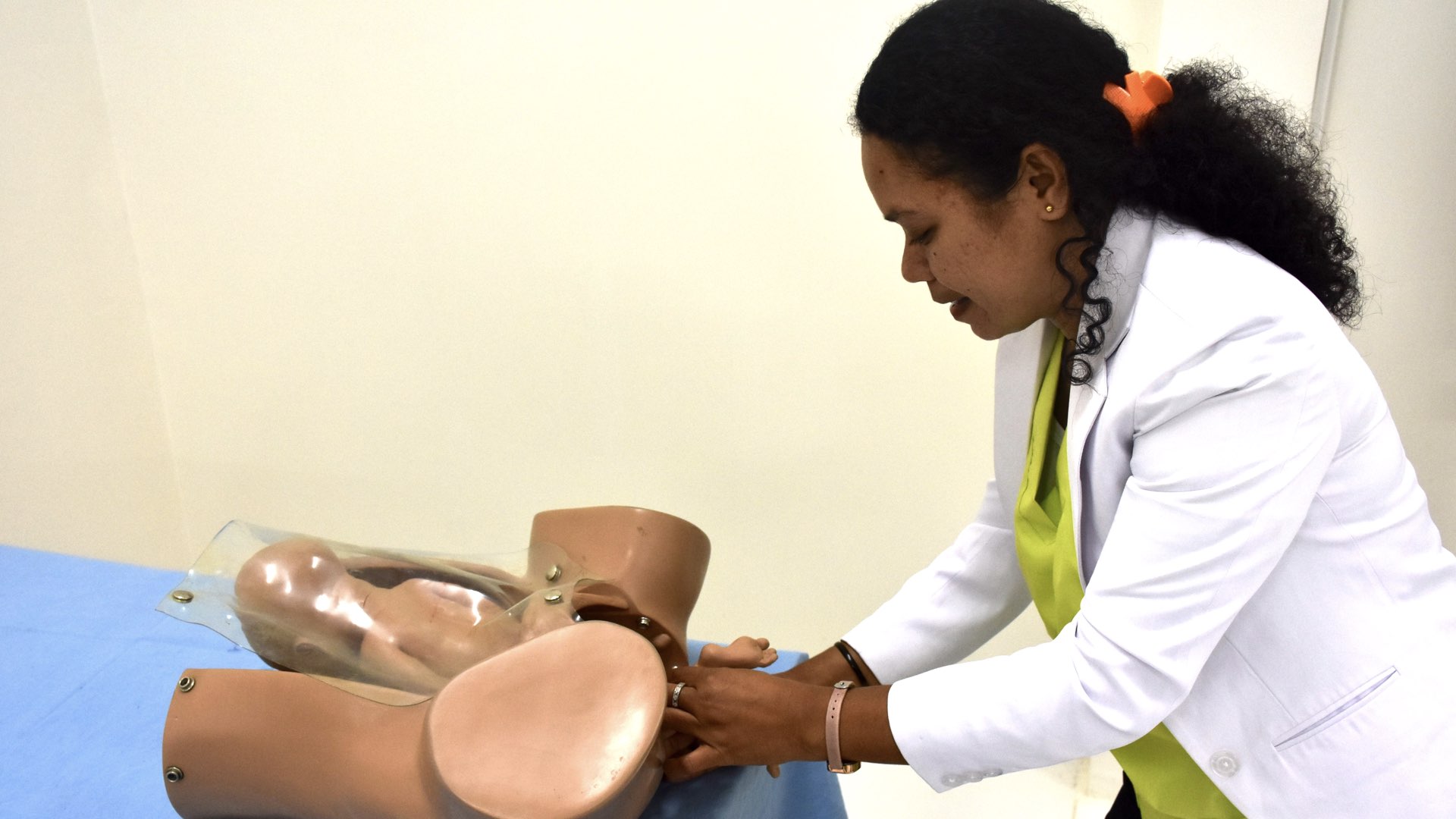
At the hospital in Maubisse, Eni will be busy treating patients. But when she has a moment, she’ll be thinking about learning new skills on the VR platform. “VR will have a big impact on me and other health providers,” she says. “It’s really going to help us to maintain our skills and increase our self-confidence.”
Eni and her fellow doctors made suggestions for the skills and scenarios they would like to learn from the VR modules. “We can learn new techniques through virtual reality,” she says. “We can practice our hand movements and it can help us maintain our skills.”
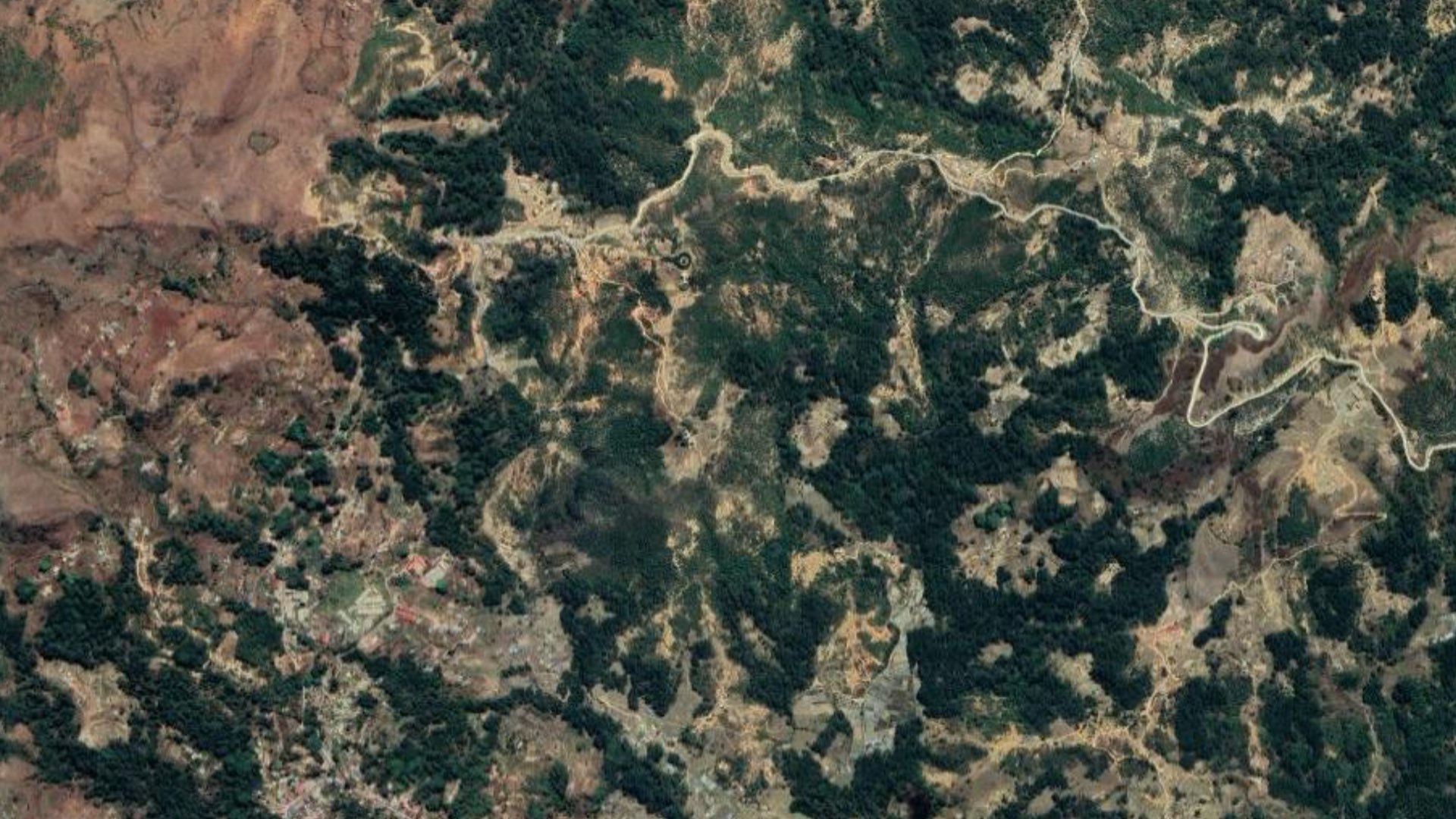

Note: The VR module is not yet complete. What the doctors and midwives experienced was a game pre-installed in the VR headset, so that they could get a sense of what VR is like and how they would feel about it. This user-testing phase included a survey to collect information about the context in their duty stations and whether or not they would use VR.
This initative was supported with a grant from the UNFPA Innovation Fund.

